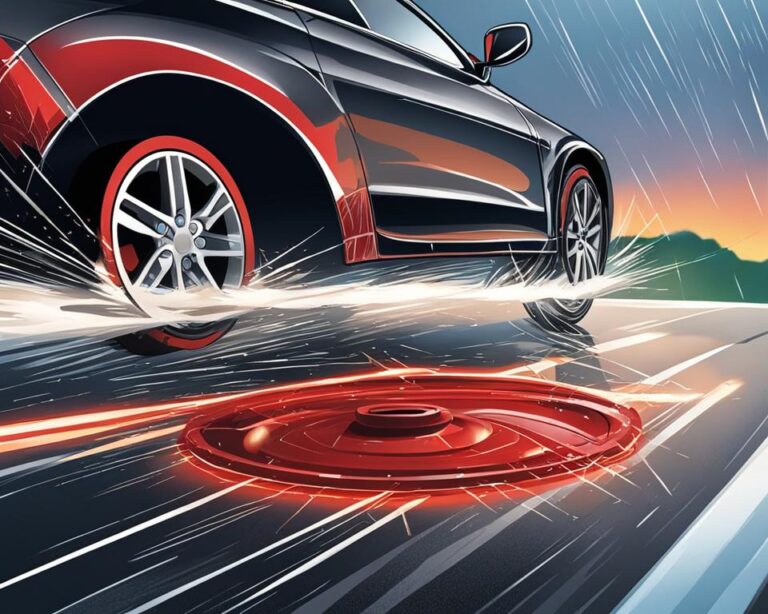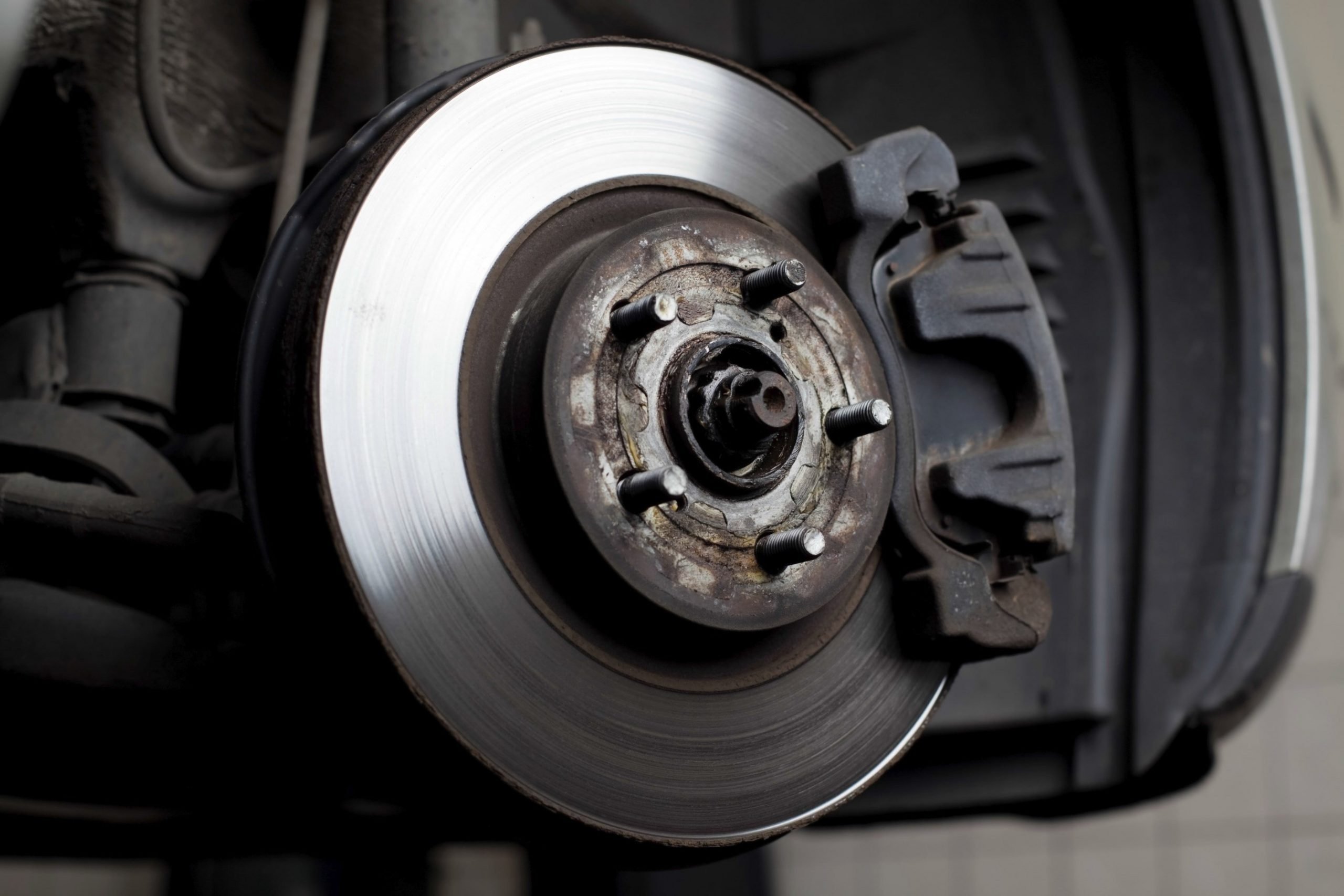Sensational Info About Why Do Toyota Brakes Squeal

Why Do My Brakes Squeak? (Vehicle Maintenance)
Why Do Toyota Brakes Squeal? Understanding the Sounds Your Car Makes
1. The Mystery of the Squealing Brakes
Okay, let's talk about something that's probably annoyed every Toyota owner at some point: that high-pitched squeal coming from the brakes. It's like your car is singing a not-so-sweet song, and it's usually not a chart-topper. But what's the deal? Why do Toyota brakes squeal? Is it a sign of impending doom, or just a quirk of the system? Understanding the reasons behind this noise can save you from unnecessary panic (and potentially, an unnecessary trip to the mechanic).
The truth is, brake squeal can arise from a number of different factors, some of which are perfectly normal and others that might indicate a problem. It's like a doctor trying to diagnose an illness — you need to look at all the symptoms to figure out the root cause. We'll explore the common culprits in detail below, so you can become a brake-squeal detective!
Imagine you're trying to enjoy a peaceful drive, perhaps listening to your favorite podcast, when suddenly, that ear-piercing squeal interrupts. It's enough to make you jump! Knowing that the sound doesn't always mean your car is about to fall apart is the first step to staying calm and collected. Plus, sometimes its just plain embarrassing when you pull up to a stop light and everyone turns to look.
So, buckle up, and let's dive into the world of Toyota brake squeal, exploring the common reasons and how to tell if it's a serious issue or just a temporary annoyance. We'll also equip you with some knowledge to discuss the issue with your mechanic confidently.

Why Do Brakes Squeak Need To Know Hidden Tips Auto Tech Gurus
Common Causes of Brake Squeal in Toyotas
2. Brake Pad Composition and Materials
One of the most common reasons for brake squeal, believe it or not, has to do with the materials used to make the brake pads themselves. Many modern brake pads are made with semi-metallic or ceramic compounds. These materials are great for stopping power and durability, but they can also vibrate at certain frequencies, which translates into that annoying squealing sound. Think of it like rubbing two pieces of chalk together — the friction creates a noise.
These vibrations are especially common when the brakes are cold or damp. That's why you might notice the squeal more often in the morning or after it's been raining. As the brakes heat up, the vibrations can subside, and the squeal might disappear, too. It's kind of like the brakes need to warm up their vocal cords before they can perform smoothly. It's also worth noting that the type of brake pad your Toyota uses can affect this; cheaper pads sometimes utilize less noise-dampening materials.
Another factor at play is the accumulation of brake dust. As the brake pads wear down, they release tiny particles that can get trapped between the pad and the rotor. This dust can act as an abrasive, causing the pads to vibrate and squeal. Regularly cleaning your brakes can sometimes help to alleviate this issue — think of it as giving your brakes a good scrub to clear out the debris.
Finally, consider the age of your brake pads. As they wear down, the composition and structure of the pad can change, leading to increased vibrations and squealing. This is a natural part of the brake pad life cycle, and it's a good reminder to have your brakes inspected regularly to ensure they're still functioning safely and effectively.

Brake Dust and Debris
3. The Grime Factor
Alright, let's talk about the grime factor! Brake dust is essentially the byproduct of your brake pads wearing down every time you hit the brakes. It's a fine, dark powder that's a mix of materials from the pads and the rotors. Over time, this dust can accumulate on various parts of the braking system, creating a layer of grit that can cause friction and, yep, you guessed it, squealing.
Think of it like this: Imagine you're trying to slide two smooth pieces of glass against each other. They'll move easily. But if you sprinkle some sand between them, it'll create resistance and a grinding noise. Brake dust acts similarly, causing the pads and rotors to vibrate against each other, resulting in that high-pitched squeal we all know and love (or, more accurately, dislike).
Environmental factors can also play a role. Dirt, road salt, and other debris can get mixed in with the brake dust, creating an even more abrasive concoction. This is especially true if you live in an area with harsh winters or drive on unpaved roads frequently. It's like your brakes are getting a constant dose of sandpaper, which can definitely contribute to the squealing issue.
Fortunately, there are ways to combat the grime factor. Regularly cleaning your brakes can help to remove accumulated dust and debris, reducing the likelihood of squealing. Some car washes offer brake cleaning services, or you can tackle the job yourself with the right tools and cleaning products. Keeping your brakes clean is not only good for reducing noise, but also for prolonging the life of your braking system.

Environmental Factors and Weather Conditions
4. The Influence of Rain, Humidity, and Cold
You might not think about it much, but the weather can actually have a significant impact on your Toyota's brakes. Ever noticed how your brakes squeal more after a rain shower or on a particularly humid morning? That's because moisture can affect the friction between the brake pads and rotors. When water gets in between these surfaces, it can create a thin film that alters the way they interact, leading to vibrations and squealing.
Cold temperatures can also play a role. When the metal components of your braking system get cold, they can contract slightly, which can change the fit between the pads and rotors. This altered fit can sometimes cause the pads to vibrate more readily, resulting in squealing. It's like the brakes are complaining about the cold, just like we do!
In coastal areas, salt air can also contribute to brake squeal. Salt is corrosive, and it can cause rust to form on the rotors and other metal parts. This rust can create an uneven surface, which can lead to vibrations and noise. Think of it like trying to slide a perfectly smooth object over a bumpy surface — it's going to create some friction and noise.
While you can't control the weather, there are things you can do to mitigate its effects on your brakes. Regularly washing your car, including the wheels and brakes, can help to remove salt and other contaminants. Also, consider parking your car in a garage or covered area during extreme weather to protect it from the elements. These simple steps can help to keep your brakes in good condition and reduce the likelihood of weather-related squealing.

What Causes New Brakes To Squeal
Worn Brake Pads and Rotors
5. The Wear and Tear Factor
Let's face it: brake pads and rotors aren't meant to last forever. They're designed to wear down over time as they perform their essential function of stopping your car. As these components wear, the friction surfaces can become uneven, which can lead to vibrations and, of course, squealing. It's a natural part of the braking system's life cycle.
Worn brake pads can also cause the brake pad wear indicator, sometimes called a "squealer," to make noise. This indicator is a small metal tab that's designed to rub against the rotor when the brake pads get too thin. It's a built-in warning system to let you know that it's time to replace your brake pads. So, if you hear a squealing noise that's consistent and gets louder when you brake, it's a good idea to have your brakes inspected right away.
Rotors can also develop grooves and imperfections as they wear down. These imperfections can cause the brake pads to vibrate as they make contact, leading to squealing. In some cases, the rotors can be resurfaced to smooth out these imperfections, but if they're too severely worn, they'll need to be replaced altogether. Think of it like resurfacing a wooden floor to remove scratches and imperfections.
Regular brake inspections are crucial for identifying worn brake pads and rotors before they cause serious problems. A qualified mechanic can assess the condition of your braking system and recommend the appropriate repairs or replacements. Addressing wear and tear issues promptly can not only prevent squealing but also ensure that your brakes are functioning safely and effectively.

Squeaky Brakes Why It Happens And How To Fix It?
What to Do About Squealing Brakes
6. Troubleshooting and Solutions
So, you've got squealing brakes. What now? Well, the first step is to try to diagnose the cause. Is the squealing constant, or does it only happen under certain conditions? Is it worse when the brakes are cold or wet? Paying attention to these details can help you narrow down the potential culprits. For example, if the squealing only happens when you first start driving, it might just be due to surface rust on the rotors, which will wear off after a few stops.
If the squealing is more persistent, it's a good idea to have your brakes inspected by a professional. They can check the condition of your brake pads, rotors, and calipers to determine if there are any worn or damaged components. They can also clean the brakes to remove any accumulated dust and debris. It's like getting a second opinion from a doctor — it's always good to have an expert take a look.
In some cases, the solution might be as simple as replacing your brake pads. If your pads are worn down or contaminated, new pads can often eliminate the squealing. When choosing replacement pads, consider opting for high-quality pads that are designed to minimize noise. Your mechanic can recommend the best options for your Toyota and driving style.
If the rotors are worn or damaged, they may need to be resurfaced or replaced. Resurfacing can smooth out imperfections on the rotor surface, while replacement is necessary if the rotors are too thin or severely damaged. Addressing rotor issues can not only eliminate squealing but also improve your braking performance. Remember, your brakes are a critical safety system, so it's important to keep them in good working order.